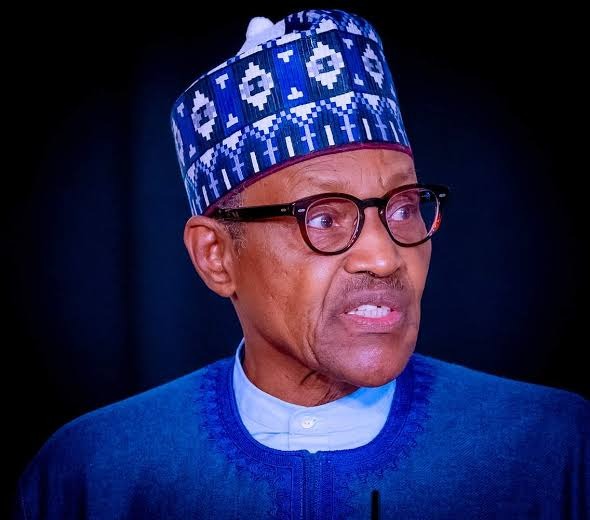The Organised Private Sector has described the late former President Muhammadu Buhari as a reform-minded leader whose administration pursued long-overdue structural changes with “strategic patience and political courage” amid difficult economic and global challenges.
The Lagos Chamber of Commerce and Industry and the Manufacturers Association of Nigeria stated this in separate tributes following the announcement of Buhari’s death on Monday at the age of 82.
Director-General of the LCCI, Dr Chinyere Almona, noted that the former President led the country through turbulent global and domestic headwinds, including oil price crashes, recessions, the COVID-19 pandemic, and security upheavals, but still prioritised key reforms in governance and the economy.
Almona said, “President Buhari leaves a legacy defined by a deep commitment to fighting corruption, blocking revenue leakages, fighting insurgency, structural reforms, and infrastructure development.”
She described the enactment of the Petroleum Industry Act in 2021 as one of the most consequential policy breakthroughs of the Buhari administration, ending “nearly two decades of legislative inertia in Nigeria’s oil and gas sector.”
The PIA introduced a modern regulatory framework, restructured national oil institutions, and created equity-based development funds for host communities.
The LCCI also lauded the signing of the Companies and Allied Matters Act 2020, which it said “simplified corporate processes, enabled single-member companies, and introduced governance transparency through beneficial ownership disclosures.”
Almona highlighted Buhari’s institutionalisation of annual Finance Acts (2019–2022), the Deep Offshore and Inland Basin Production Sharing Contract (Amendment) Act, and several Executive Orders, including EO 003 and EO 005, which required MDAs to prioritise local content in procurement.
“These policy efforts boosted investor confidence and modernised the private sector environment,” she stated.
She also acknowledged major infrastructure milestones, such as the Second Niger Bridge, the Lagos-Ibadan and Itakpe-Warri rail lines, and over 13,000km of rehabilitated roads. Other reforms, she said, included the Treasury Single Account, the Integrated Payroll and Personnel Information System, and the Whistleblower Policy, which improved fiscal transparency.
While recognising that opinions vary across regions and sectors, the LCCI said Buhari’s focus on systems building, local content, and governance structures that promote self-sufficiency would remain relevant to Nigeria’s development.
“We call on current and future leaders to build on these foundations and continue to advance policies that support enterprise, innovation, and inclusive growth,” Almona added.
In a similar tribute, the President of the Manufacturers Association of Nigeria, Francis Meshioye, said Buhari’s tenure brought attention to the critical role of the manufacturing sector in Nigeria’s economic future.
“His policies aimed at promoting economic growth, improving infrastructure, and enhancing Nigeria’s industrial development,” Meshioye said. He noted that the former President listened to manufacturers’ concerns and granted the association an audience to proffer solutions to sectoral challenges.
Though MAN acknowledged that the economy faced headwinds during Buhari’s tenure, Meshioye said the former leader “provided solutions to some of the challenges confronting manufacturers.”
MAN urged the Federal Government to reflect on Buhari’s policy decisions and recommit to creating an enabling environment for sustainable industrial growth.
“As the nation reflects over the life and career of President Muhammadu Buhari, we call upon all Nigerians to honour his memory by working toward the advancement of manufacturing and the overall well-being of the citizenry,” MAN stated.
Buhari served as Nigeria’s head of state from 1983 to 1985 and later as a democratically elected President from 2015 to 2023. He died at a London clinic on July 13 and is survived by his wife, Aisha, children, and grandchildren.
Tributes to the late President Buhari are mixed. Critics maintain that he introduced policies that worsened the poverty in the country. He banned the importation of rice to foster local farmers but this policy worsened the hunger situation as local farmers could not meet the supply needs.
Towards the end of his second term as a democratically elected leader, Buhari presided over the controversial Naira Swap policy, which was touted as a solution to reduce the selling of votes in the 2023 general elections.
The Naira swap policy saw the Central Bank of Nigeria seize a lot of old naira notes, but did not have enough new naira notes, leading to shortages and commodification of the scarce new naira notes. The successive administration of President Bola Tinubu discontinued this policy.















